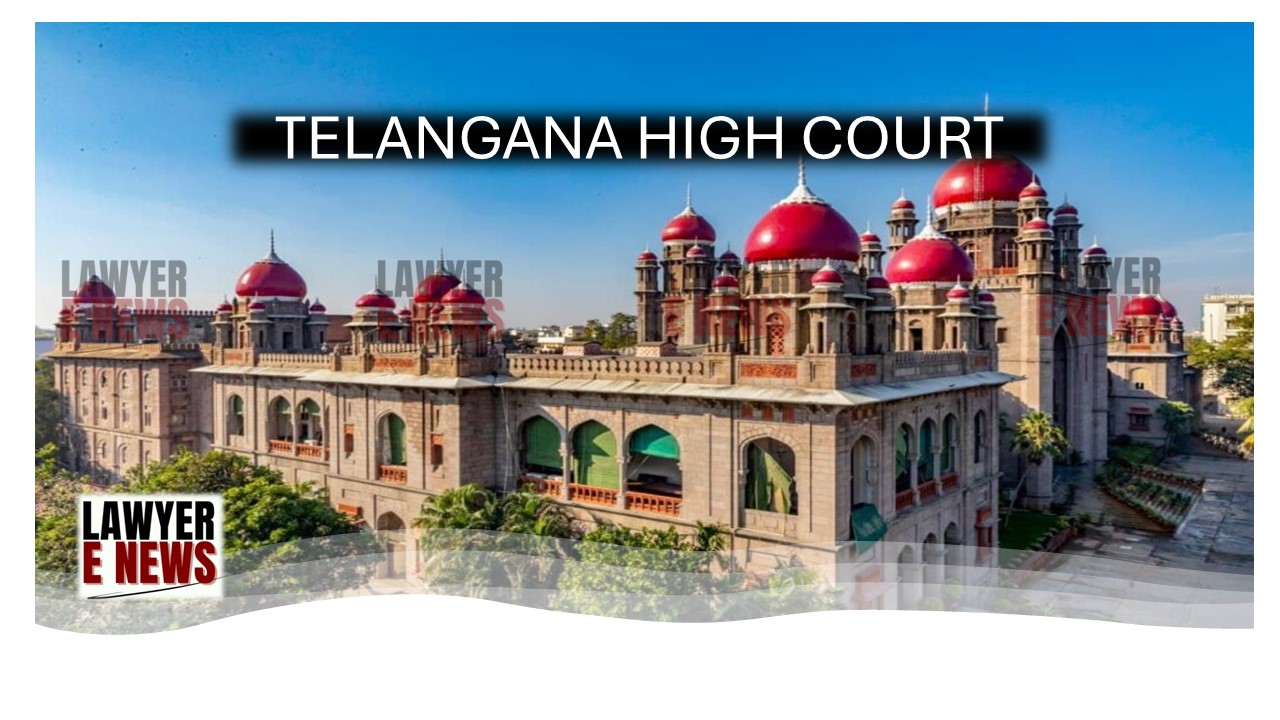-
by Admin
15 February 2026 5:35 AM



In a significant judgement, Telangana High Court allowed the second appeal, setting aside the judgments of the trial court and the lower appellate court. The Court held that the suit filed by the plaintiff for declaration of title and recovery of possession was barred by limitation under Article 58 of the Limitation Act, 1963, as it was filed beyond the prescribed period of three years after the denial of the plaintiff's title. The appeal was decided by Justice G. Radha Rani.
The dispute originated over agricultural land in Sy.No. 357/2, Peddakodur Village, Chinnakodur Revenue Mandal, Medak District. The plaintiff (Nakka Narsaiah) filed a suit in 1997 for declaration of title and recovery of possession against the defendants (Reddy Malla Reddy and another), challenging the proceedings initiated under Section 5-A of the Andhra Pradesh Rights in Land and Pattedar Passbooks Act, 1971 (ROR Act). The plaintiff claimed ownership based on inheritance from his father and alleged that the defendants had interfered with his possession in 1990. The defendants contended that they had purchased the land from the plaintiff’s father through a simple sale deed executed in 1960 and had been in continuous possession of the property.
Limitation for Declaration of Title: The key issue before the court was whether the suit for declaration of title and recovery of possession was barred by limitation. The trial court and the lower appellate court had applied Article 65 of the Limitation Act (12 years), which pertains to suits for possession based on adverse possession. However, the High Court found that Article 58—which prescribes a 3-year limitation period for declaratory suits—was applicable since the defendants had denied the plaintiff’s title as early as 1990.
"The suit ought to have been filed within three years from the date of the denial of title by the defendants in their written statement filed in O.S No.123 of 1990 on July 16, 1990. Filing the suit in 1997 was clearly beyond the limitation period," the court noted.
Burden of Proof on Limitation: The court observed that the trial court had wrongly placed the burden of proving the issue of limitation on the defendants. It clarified that the burden rests on the plaintiff to establish that the suit was filed within the statutory limitation period.
“The trial court committed an error in placing the burden of proving the limitation aspect on the defendants. Even if the defendants are set ex parte, the court is obligated to examine whether the suit is barred by limitation,” the Court said.
Validity of ROR Proceedings: The plaintiff had also sought to nullify the ROR proceedings initiated by the defendants, arguing that they were fraudulent and conducted without proper notice. However, the Court noted that the plaintiff had failed to make the Mandal Revenue Officer (MRO) a party to the suit, despite challenging the MRO’s orders. Additionally, the plaintiff did not file an appeal under Section 5-B of the ROR Act to challenge the MRO’s decision.
"Without joining the MRO as a necessary party, the suit could not succeed in challenging the ROR proceedings," the court remarked.
Failure to Prove Dispossession: On the issue of dispossession, the Court found that the plaintiff had failed to provide specific pleadings or evidence regarding the date and circumstances of his dispossession from the land, which was a critical aspect of his claim for recovery of possession.
“The plaintiff must state the specific date of dispossession in order to compute the period of limitation, which he failed to do,” the Court held.
The Court thoroughly examined the issues of limitation, the validity of the sale deed, and the ROR proceedings:
Limitation Bar: The Court held that the suit for declaration of title was barred by limitation, as the plaintiff filed it six years after the denial of his title by the defendants.
ROR Proceedings: The Court set aside the lower courts’ rulings that had declared the ROR proceedings null and void, noting the absence of the MRO as a necessary party and the failure to pursue statutory remedies.
Dispossession and Section 53-A of Transfer of Property Act: The defendants were entitled to protection under Section 53-A of the Transfer of Property Act, as they had been in possession of the land since 1960, pursuant to the simple sale deed executed by the plaintiff’s father.
The Telangana High Court allowed the second appeal, setting aside the judgments of both the trial court and the first appellate court, and dismissed the suit filed by the plaintiff. The court reaffirmed that the suit was barred by limitation and that the plaintiff had failed to meet the legal burden required for declaring title and recovery of possession.
Date of Decision:October 15, 2024
Nakka Narsaiah v. Reddy Malla Reddy and Another
